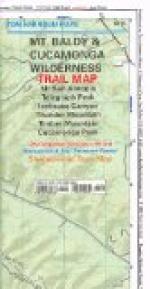“Herb,” he said, “we three fellows want you to stay here for a few days, and not to do anything about a second-hand rifle until you hear from us. Mind!”
And so it happened that, ten days or so later, while the three were enjoying the hospitalities of the Sinclairs and “their crowd” in the Quaker City, Herb, who was still in Greenville, waiting for a fresh engagement as guide, was accosted by the driver of the coach from Bangor.
“Herb Heal, here’s a bully parcel for you,” said the Jehu, with a knowing grin. “Came from Boston, I guess. I war booked to take pertik’lar care of it.”
And Herb, feeling his strong fingers tingle, undid many wrappers, and hauled out, before the eyes of Greenville loungers, a rifle such as it is the desire of every Maine woodsman’s heart to possess.
A best grade, 45-90, half-magazine Winchester it was, fitted with shot-gun stock and Lyman sights, and bearing a gleaming silver plate, on which was prettily lettered:—
HERB HEAL
IN MEMORY OF OCTOBER, 1891.
Underneath was engraved a miniature pine, its trunk bearing three sets of initials.
Herb stalked straight off a distance of one mile to Doctor Buck’s house, pushed the door open as if it had been the door of a wilderness camp, and shot himself into Doc’s little study.
“Look what those three gamy fellows have sent me,” he said; and his eyes were now like Millinokett Lake under a full sun-burst. “I thought the old one was a corker, but this”—
Here the woodsman’s dictionary gave out.
CHAPTER XXVII.
CHRISTMAS ON THE OTHER SIDE.
“‘Christmas, 1893.’ Those last two figures are a bit crooked; aren’t they, Dol?” said a tall, soldierly fellow, who was no longer a boy, yet could scarcely in his own country call himself a man.
He read the date critically, having fixed it as the centre-piece in a festive arch of holly and bunting, which spanned the hall of a mansion in Victoria Park, Manchester.
“I believe that’s better,” he added, straightening a tipsy “93,” and bounding from a chair-back on which he was perched, to step quickly backward, with a something in gait and bearing that suggested a cavalry swing.
“‘Christmas, 1893,’” he read musingly again. “Goodness! to think it’s two years since we laid eyes on old Cyrus, and that he has landed on English soil before this, may be here any minute—and Sinclair too. I guess”—these two words were brought out with a smile, as if the speaker was putting himself in touch with the happiness of a by-gone time—“I guess that ‘Star-Spangled Banner’ will look home-like to them.”
And Neal Farrar, just back for a short vacation from Sandhurst Military College, twice gravely saluted the gay bunting with which his Christmas arch was draped, where the Union Jack of old England kissed the American Stars and Stripes.




